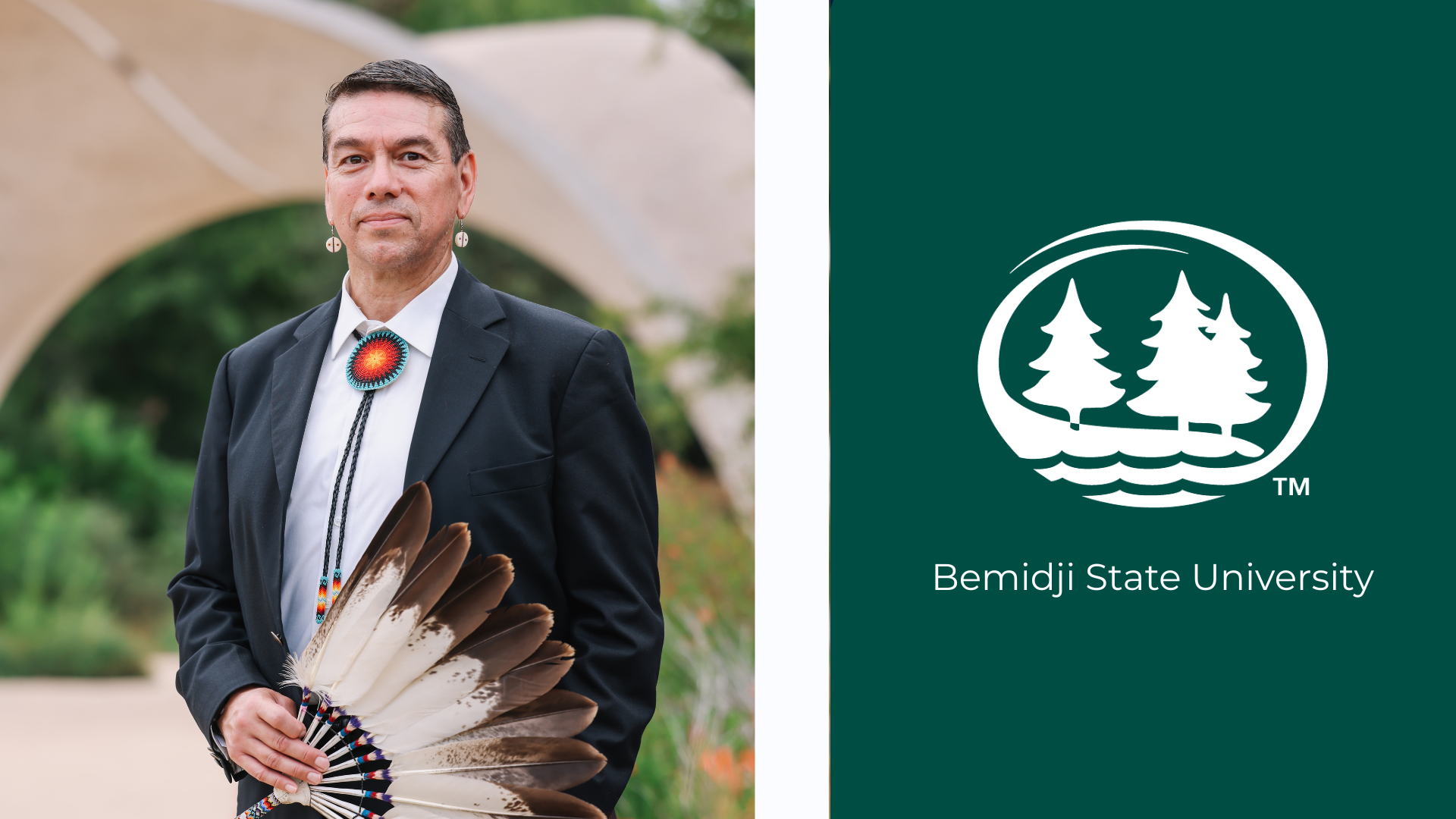
Dr. Mark Standing Eagle Baez wants to change the conversation on Indigenous mental health.
Baez, an associate professor in Bemidji State University’s clinical and counseling psychology program, has developed culturally responsive approaches to mental health diagnosis and treatment that blend Western psychology with traditional Indigenous healing practices.
This year alone, Baez — a member of the Coahuiltecan tribe’s Waterbird clan and of Mohawk and Pawnee descent — has published four articles in the field.
His recent piece in the American Journal of Neurology Research introduced the Indigenous Suicide-Assessing-Factors of Event (SAFE) Screening tool, a suicide screening instrument designed specifically for American Indian and Alaska Native populations.
“The ISS is a culturally aligned and sensitive suicide screening tool specifically developed by an Indigenous practitioner for Native American and Alaska Native communities,” Baez said.
He describes the Indigenous SAFE Screening (ISS) tool as the “first of its kind,” developed with a panel of experts. Beginning this fall, Baez will conduct a small pilot study with agencies and tribes in Minnesota that will continue into early 2026, followed by a larger study with tribes across the United States.
Baez created the tool in response to high rates of suicide among Native American populations, which have been linked to factors such as historical trauma, discrimination and limited access to culturally relevant care. Standard Western screening tools are often considered culturally insensitive and may fail to capture unique risk and protective factors for Indigenous people.
Baez also co-authored an article in the Addictions Research Journal titled “Indigenous Frameworks for Practitioners Working with American Indian/Alaska Native Clients Dealing with Substance Use Disorders.”
He views publishing as more than just a professional milestone.
“To be published is to contribute a single voice to the conversation of science,” he said. “To be published multiple times is to prove that one’s dedication, persistence, and pursuit of mental health, healing, and wellness echo far beyond the page.”
Baez serves as president of the Society of Indian Psychologists, an organization with more than 570 members. Since joining BSU, he has authored eight scholarly articles and two book chapters, with additional chapters and articles in press. He has delivered keynote addresses nationally and internationally.
He recently presented at the American Psychological Association convention in Denver, Colorado, in August. Throughout the next several months, he is scheduled to speak at the University of Iowa, the University of Oklahoma, the International Health and Wellness convention in Chicago, the Neurology Research Convention in the United Kingdom and the 42nd International Conference on Advancing in Psychiatry and Mental Health in Dubai.
Another article, published in the Journal of Indigenous Research and co-authored with Dr. C. Allison Baez, expands his Sweetgrass Method framework to bullying prevention among Native youth. The Sweetgrass Method is a three-strand framework he developed in 2008 that weaves together Indigenous practice-based evidence and Western evidence-based practices for Indigenous clients. The approach emphasizes introspection, communication and continuation to help practitioners build trust, engage respectfully with families, and maintain culturally responsive support in community and clinical settings.
Baez has more than 15 years of experience as a practitioner, serving communities across Indian Country. He is a licensed school psychologist, a licensed alcohol and drug counselor, a certified cognitive behavioral therapist, and a general psychologist with an emphasis on cognition and learning. The American Psychological Association has recognized his work advancing psychological programs that serve Indigenous populations in the United States, Canada, New Zealand and Australia.
At BSU, Baez co-directs InPsyT, the Indigenous Students in the Psychology Program, and frequently mentors and co-authors research with students.
Throughout his research, teaching and service, Baez emphasizes the importance of Indigenizing psychological services by incorporating cultural values, traditional healing practices and community-based approaches. Those elements, he said, are essential to addressing historical trauma and improving mental health outcomes for Indigenous communities.
Story by: Emily Dukek-Haasken.
